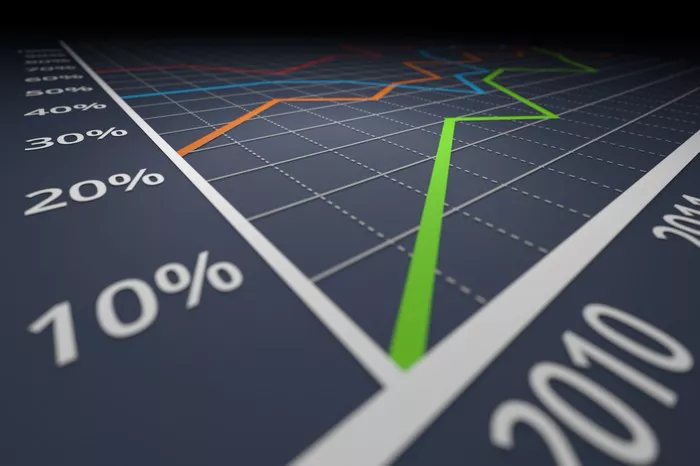The stock exchange market is a cornerstone of modern economies, playing a vital role in facilitating investment, capital formation, and wealth creation. For many, the stock market can seem daunting and complex, but with a clear understanding of its fundamentals, anyone can navigate its intricacies and potentially benefit from its opportunities. In this guide, we’ll delve into the meaning of the stock exchange market, its functions, key players, and how it impacts the global economy.
What is the Stock Exchange Market?
At its core, the stock exchange market is a platform where buyers and sellers come together to trade shares of publicly listed companies. These exchanges serve as centralized marketplaces where stocks, bonds, commodities, and other financial instruments are bought and sold. The primary objective of a stock exchange is to provide liquidity and price discovery for these securities.
Functions of the Stock Exchange Market
1. Facilitating Capital Formation: One of the fundamental functions of the stock exchange market is to enable companies to raise capital by issuing shares to investors. Through initial public offerings (IPOs) and subsequent secondary offerings, businesses can access funding to finance expansion, research and development, and other strategic initiatives.
2. Providing Liquidity: Liquidity refers to the ease with which an asset can be bought or sold without significantly affecting its price. Stock exchanges play a crucial role in providing liquidity by matching buyers and sellers efficiently. This liquidity ensures that investors can enter or exit positions in a timely manner, reducing transaction costs and enhancing market efficiency.
3. Price Discovery: The stock exchange market serves as a mechanism for determining the prices of securities through the forces of supply and demand. As buyers and sellers interact, the market continuously adjusts prices based on available information, investor sentiment, and macroeconomic factors. Price discovery is essential for valuing assets and making informed investment decisions.
4. Facilitating Risk Management: Stock exchanges offer various instruments, such as options and futures contracts, that allow investors to hedge against price fluctuations and manage risk in their portfolios. These derivative products enable market participants to protect their investments or speculate on future price movements.
Key Players in the Stock Exchange Market
1. Investors: Investors are individuals or institutions that buy and sell securities on the stock exchange market with the aim of generating returns. They include retail investors, institutional investors such as mutual funds and pension funds, hedge funds, and high-net-worth individuals.
2. Listed Companies: Listed companies are entities that have issued shares to the public and are traded on the stock exchange. These companies range from small startups to multinational corporations and operate across various sectors of the economy.
3. Stock Exchanges: Stock exchanges are the central marketplaces where trading occurs. They provide the infrastructure, rules, and regulations necessary for fair and orderly trading. Examples of prominent stock exchanges include the New York Stock Exchange (NYSE), Nasdaq, London Stock Exchange (LSE), and Tokyo Stock Exchange (TSE).
4. Regulators: Regulatory bodies oversee the functioning of the stock exchange market to ensure transparency, fairness, and investor protection. They establish rules and regulations governing listing requirements, trading practices, disclosure standards, and market manipulation.
Impact of the Stock Exchange Market on the Economy
The stock exchange market plays a pivotal role in driving economic growth and development. Here are some ways in which it impacts the economy:
1. Capital Allocation: By connecting savers with investors, the stock exchange market allocates capital to its most productive uses. This capital allocation process facilitates innovation, entrepreneurship, and job creation, driving economic expansion.
2. Wealth Creation: Rising stock prices and dividends contribute to the accumulation of wealth for investors, ranging from individual shareholders to pension funds and endowments. This wealth effect can stimulate consumer spending, bolstering economic activity.
3. Corporate Governance: Publicly listed companies are subject to greater scrutiny and accountability, as they must adhere to regulatory requirements and meet the expectations of shareholders. Strong corporate governance practices promote transparency, integrity, and long-term value creation.
4. Benchmark for Economic Performance: Stock market indices, such as the S&P 500 and the Dow Jones Industrial Average, serve as barometers of economic health and investor sentiment. Changes in stock prices reflect shifts in expectations about future corporate earnings and overall economic conditions.
Conclusion
In conclusion, the stock exchange market serves as a vital engine of economic growth, facilitating capital formation, providing liquidity, and enabling price discovery. By connecting investors with listed companies, stock exchanges play a crucial role in channeling capital to its most productive uses and driving wealth creation. Understanding the functions and dynamics of the stock exchange market is essential for investors and policymakers alike to navigate its complexities and harness its potential for the benefit of society.
FAQs
Q1: What factors influence stock prices in the exchange market?
A1: Stock prices in the exchange market are influenced by a myriad of factors, including company performance, macroeconomic indicators, investor sentiment, geopolitical events, and changes in interest rates. Market participants analyze these factors to assess the intrinsic value of securities and make investment decisions accordingly.
Q2: How can individuals invest in the stock exchange market?
A2: Individuals can invest in the stock exchange market through various avenues, including direct stock purchases, mutual funds, exchange-traded funds (ETFs), and retirement accounts such as 401(k)s and individual retirement accounts (IRAs). It’s essential to conduct thorough research, diversify investments, and consider one’s risk tolerance and investment goals.
Q3: What are the risks associated with investing in the stock exchange market?
A3: Investing in the stock exchange market carries inherent risks, including market volatility, company-specific risks, sectoral risks, and systemic risks. Additionally, factors such as geopolitical events, regulatory changes, and unexpected economic downturns can impact investment returns. It’s crucial for investors to assess and manage these risks effectively through diversification, asset allocation, and periodic portfolio rebalancing.


